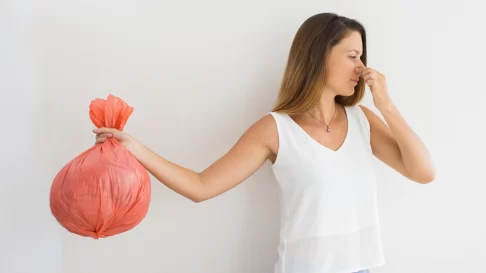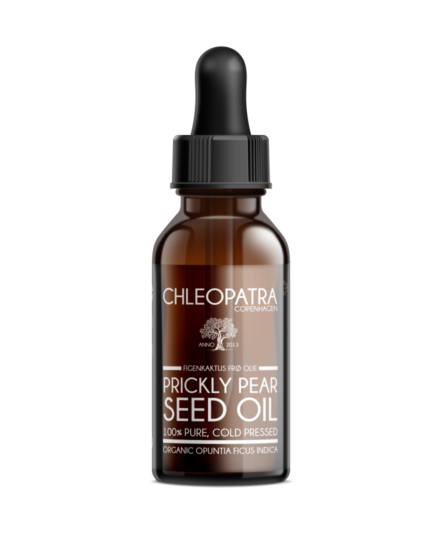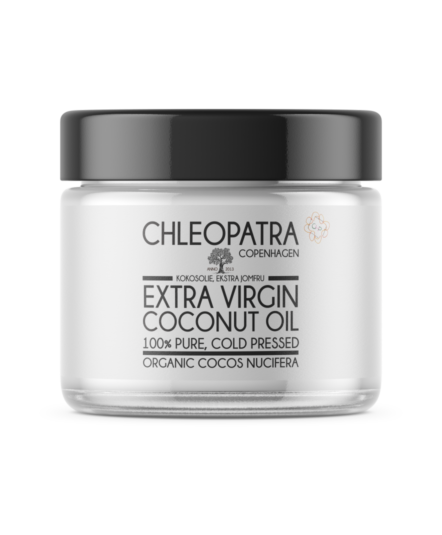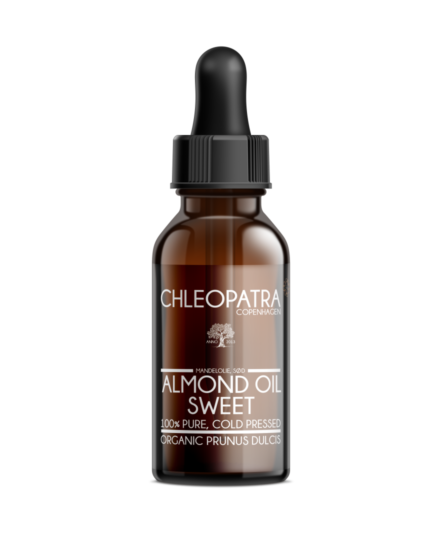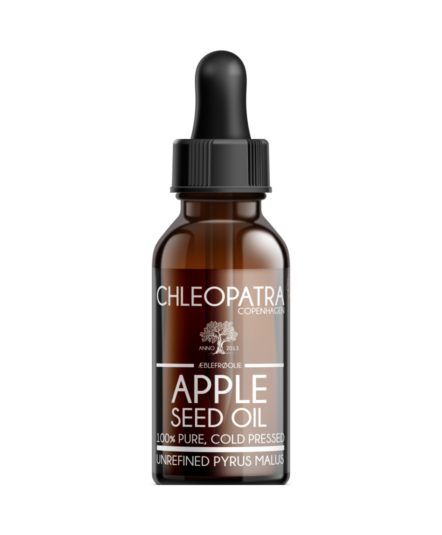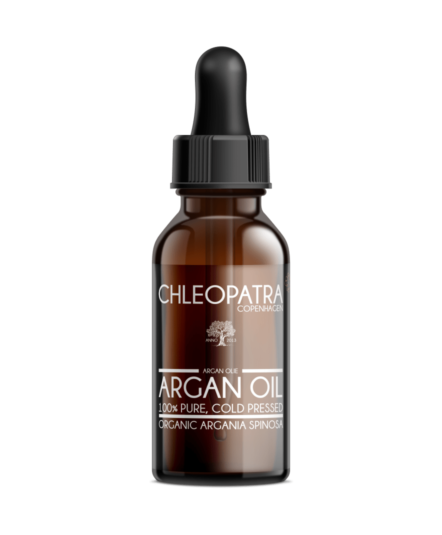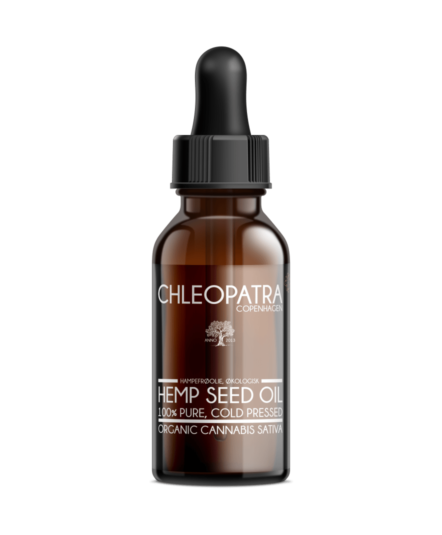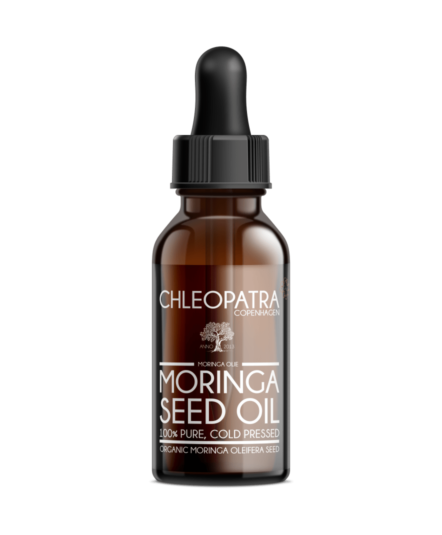Baby oil
For Skin Care, Bath Oil, Massage, Scars, Blemishes and Skin Irritations
As a parent, you only want the best for your baby, and when it comes to skincare, it's important to choose products that are natural and safe to use on your baby's delicate skin. One of the most popular products for baby skin care is baby oil. But why is it so good and how do you choose the best baby oil? On this page, we'll explore all about baby oil - what it is, how to use it and why it's a must-have in every parent's routine.
The best baby oils
Our own best in class test of baby oils.
We recommend the following oils if the purpose is oils for babies.
| Oil | Advantages | How to use |
|---|---|---|
| Apricot kernel oil | Light oil that absorbs quickly and moisturises. Contains vitamin E, which helps protect the skin from free radical damage | Good for dry and sensitive skin. Can be used for massage or as a bath oil. |
| Jojoba oil | Close to the skin's natural oils and penetrates easily into the skin. Contains vitamins E, B and zinc. | Suitable for all skin types, especially dry and oily skin. Can be used for massage and as a facial oil. |
| Coconut oil | Natural anti-inflammatory and antibacterial properties. Contains fatty acids that help protect and soothe the skin. | Good for dry and irritated skin. Can be used as a bath oil or as a moisturising hair treatment. |
| Almond oil | Rich in vitamin E and antioxidants that protect the skin against free radicals. Also has a calming effect on the skin. | Suitable for all skin types, especially sensitive and dry skin. Can be used as a massage oil. |
What is baby oil?
Babies have the most beautiful and soft skin, but they also have very delicate skin. This is because their skin is not fully developed yet.
Baby oil is a versatile oil that can be used to nourish and protect a baby's skin. It is usually made from a blend of natural ingredients such as jojoba oil, almond oil, sunflower oil, coconut oil or shea butter.
These ingredients are known to be mild and gentle on sensitive skin and can help prevent irritation and rashes.
A bay oil helps to soften, moisturise and nourish the skin. However, in many cases, a baby oil is used for babies, children and adults alike to nourish the skin against skin problems such as scars, acne, redness and dry skin.
As with so many other things we mistake for a complicated and complex mix of incomprehensible ingredients, a good and safe baby oil is usually just a variety of mild vegetable oils.
Other commercial products may also consist of several other things, but just because it's labelled with the word baby oil, don't buy blindly.
As far as possible, avoid harsh chemicals for your baby's delicate skin - and especially for your own skin.
OBSThere are many commercial baby oils on the market that use mineral oil. We recommend staying far away from them.
Firstly, mineral oil is a by-product of petrol production, and secondly, many people experience skin irritation as a result of using it.
In other words, baby oil should only contain mild vegetable oilsthat are safe to use on young children and babies' soft skin.
What are the benefits of using baby oil?
There are many benefits of using baby oil to care for your baby's skin. Here are some of the most common ones:
- Humidity: Baby oil helps keep skin moisturised and hydrated, which is essential to prevent dryness and irritation.
- ProtectionBaby oil can help protect your baby's skin from harmful elements, such as wind and cold.
- ReassuranceBaby oil can have a calming effect on your baby and help reduce stress levels.
- MassageBaby oil is also a great remedy for massage. It can help calm your baby and increase the bond between you and your baby.
How do you use baby oil?
Baby oil can be used in different ways depending on the purpose. Here are some of the most common ways to use baby oil:
- SkincareApply a small amount of baby oil to your baby's skin and massage gently until the oil is absorbed. You can use baby oil after bath time or when your baby needs a little extra moisturisation during the day.
- MassageWarm a small amount of baby oil in your hands and gently massage it into your baby's skin in circular motions. This can help soothe and relax your baby.
- Hair careBaby oil can also be used to care for your baby's hair. Apply a small amount to the scalp and massage it in. Leave the oil on for 10-15 minutes and then wash the hair with a mild baby shampoo.
What are the different types of baby oil?
There are different types of baby oil designed for different purposes. Some of the most common types include:
- Mineral oilThis is unfortunately one of the most popular types of baby oil. We don't recommend it as it can easily irritate the skin.
- Jojoba oilThis type of baby oil is rich in vitamins and antioxidants, which can help protect your baby's skin from damage.
- Almond oilAlmond oil is known for its softening effect and is ideal for soothing dry and irritated skin.
- Coconut oilCoconut oil is known for its antimicrobial effect and can help prevent infections on your baby's skin.
- Shea butterShea butter is rich in fatty acids and antioxidants that can help protect and repair your baby's skin.
What should you consider when choosing baby oil?
When choosing baby oil, there are some things to consider to ensure you choose the best one for your baby's skin. These include:
- IngredientsChoose a baby oil with natural and mild ingredients that are safe to use on your baby's skin.
- FragranceChoose a baby oil without strong fragrances or perfumes, as these can irritate your baby's skin or cause allergic reactions.
- Consistency: Choose a baby oil that is easy to apply and absorbs quickly into the skin.
- RecommendationsRead reviews and recommendations from other parents to find out which baby oil works best.

Baby oil should just be 100% pure oil
Baby oil is a must-have in your baby kit. A gentle oil moisturises the skin and helps keep skin soft, healthy and fresh.
A baby's delicate skin cannot avoid being exposed to some of the same elements as adults. Be it wind and hair (no matter how well we wrap them up), various particles in the air and, not least, nappy soiling.
All of this can be hard on the otherwise soft marzipan skin and this is where a good baby oil comes into its own. So it's a good idea to be prepared and keep it in the pram at all times.
Due to the delicate skin, we prefer to avoid all kinds of chemicals that no baby needs in principle. With pure oils, your baby stays as clean as possible.
What ingredients should you avoid in baby oil?
When choosing baby oil, it's important to avoid certain ingredients that can be harmful to your baby's skin. These include:
- Parabens: These are preservatives that can cause allergic reactions or endocrine disruption.
- FragranceStrong fragrances and perfumes can irritate your baby's skin or cause allergic reactions.
- Colouring agents: Colourants can cause skin irritation and allergic reactions.
- Artificial preservatives: These can cause irritation and skin rashes.
What is baby oil made of?
There are generally two different types of baby oils on the market:
- Commercial baby oil made from mineral oil typically with a slight fragrance added (98% mineral oil, 2% fragrance)
- 100% pure oil. Either as a single oil - e.g. 100% jojoba oil, or as a blended oil - e.g. 33% jojoba oil, 33% coconut oil, 33% apricot kernel oil.
As mentioned earlier, we recommend that you steer clear of number 1 - mineral oil. It's not something you should offer your body.
Instead, choose #2 - a 100% pure oil or a 100% pure oil blend.
The third alternative is, of course, to make your own oil blend yourself. That way you know the 100% content of what you're adding to your baby's skin.
How do you make baby oil?
How do you store baby oil?
To extend the shelf life of your baby oil, it's important to store it correctly. Store baby oil in a cool, dry place away from direct sunlight. Make sure to keep the oil away from children and pets.
How to use
What is baby oil good for and what is it used for?
Baby oil, or oil you apply to your baby's skin, can have many benefits.
First and foremost, it nourishes and moisturises the skin. It can also help heal skin problems such as scars, acne, irritated and sensitive skin.
Learn more about how to use baby oil below:
What is baby oil good for and what is it used for?
Baby oil is a popular skincare product that was originally made for use on babies, but it's also used by adults. It can help make skin plump, smooth and moisturised by nourishing the face and entire body.
Our baby oil is 100% pure and natural - NOT synthetic.
This allows the skin to breathe and minimises the risk of allergies and rashes.
Scar treatment
Arp is a form of baby dandruff. If you notice that your baby has scars, you can apply a little baby oil to the scalp.
Let it sit for a while and then scrape the scar off your scalp - possibly using a scalp comb.
In special cases, you can leave the oil on overnight for greater effect.
Best natural oil for scars: Apricot kernel oil
Diaper changes and a red bum
A red bum can be very painful. It is therefore important to be extra gentle if you notice that your baby has a red bum.
It's a good idea to change nappies more often and let your bum air-dry - diaper-free from time to time.
If your bum is really dirty, you can use a little oil to clean it. It's important not to use cloths that feel rough on your bum, as this can cause extra pain.
You can also use bay oil as a preventative by occasionally applying a very thin layer of oil to your bum. Allow the oil to absorb before changing your nappy (this is a perfect time to let your bum air dry).
Best oil for a red bum: Almond oil and Apricot kernel oil

Diaper rash
Almost all babies at some point experience what we call an 'episode'. nappy rash. It typically occurs when the tummy is not quite sweet and there is extra hum in the nappy, which may have accidentally been left on a little too long.
Here you may notice that the bum becomes a little red and starts to sting. It's not something the baby is particularly happy about, so as a parent, you should probably be made aware of it.
When this happens, it's good to give your bum some air and then use a mild oil with anti-inflammatory properties.
Your baby wants to get rid of a stinging bum with a mild product that doesn't make things worse. So avoid products with harsh chemicals and let natural oils do the work.
Best oil for nappy rash: Almond oil, Apricot kernel oil, Jojoba oil and coconut oil
Baby massage
Baby oil can be used to give your baby a baby massage all over the body. It nourishes and moisturises the skin and protects it from free radicals and external irritants.
Simply use a few drops and gently massage the oil into your baby's skin, using small, soft circular movements - using only your thumb if necessary.
Do it all over your body and remember to talk and tell stories with your little one while you do it.
Best oil for baby massage: Apricot kernel oil and Almond oil
Bathroom
It's a good idea to add a little oil to your baby's bath. Especially if there is no great need for it in the form of a red bum or similar.
In this way, the oil can help prevent such cases.
It also leaves skin feeling super smooth and soft, nourished and well-hydrated.
Best oils for a baby bath: Jojoba oil and coconut oil
Dry skin
If your baby has dry skin, oil is a no-brainer. Use a few drops and gently massage it into the skin in the affected areas.
Let it absorb and continue to do so until your skin feels good, elastic and deliciously soft again.
You can easily give your baby's skin a little oil several times a day - as needed.
Best oil for dry baby skin: Jojoba oil
Why use baby oil?
Remember to use a proper oil for your baby - if you use mineral oil, you might as well give your baby motor oil. So stay away from it.
Instead, use a real 100% pure and all-natural oil, such as jojoba oil or a blend of natural pure oils.
A natural, chemical-free baby oil will leave your baby's skin soft and smooth, adding both nourishment and moisturisation. It will also prevent skin problems such as scars and red bums.
Homemade baby oil
In principle, you can buy any of the above mild oils and voila - you have a baby oil. You can also choose to mix your own mild oils together.
For example, you can mix the following:
Baby oil
- 60ml apricot kernel oil
- 45ml jojoba oil
- 15ml coconut oil
Baby lotion
- 120ml coconut oil*
- 20 drops lavender oil**
*Coconut oil is solid in the mould but melts at around 25 degrees Celsius. You can either leave the oil in a warm living room or warm it gently, for example by placing it in a small amount of hot water (sealed in a waterproof container, of course).
You only need to cover the base in hot water for the oil to melt. Once melted, it will be easier to mix with other oils and ingredients.
**Lavender oil is safe to use for babies. Despite this, we still recommend that you stick to the use of pure vegetable oils - mostly for your baby's sake.
Add vitamin E to your homemade baby oil if needed
Vitamin E acts as an antioxidant, giving the oil a longer lifespan. At the same time, vitamin E is incredibly protective for the skin. Protects against the sun and against stretch marks, e.g. in connection with growing children.
Recommended dose: 0.5%

Use a neutral baby oil
Babies naturally do not tolerate the same raw materials as adults do. That's why a baby oil should be as neutral as possible.
Neutral means that the oil(s) you use on your baby should be as mild as possible. Mild doesn't mean they aren't effective, as they will all help to moisturise, nourish and protect the skin.
A mild and neutral oil simply means that it doesn't irritate the skin over time and that it doesn't contain any harsh ingredients.
Vegetable oils are not usually thought to be so powerful that they pose any risk to your baby. Conversely, you might as well go for those that are definitely gentle on the skin and can be used over and over again without any risk.
Fragrance-free baby oil
You should always avoid perfumed content for your baby as much as possible. Fragrances can be allergenic and can unnecessarily irritate your baby's skin.
It is possible to add a drop or two of your favourite essential oil, but you should make sure it is safe to use for babies first and then strongly consider why you think it is necessary.
Because even though essential oils are natural, they are highly concentrated and extremely powerful oils that absolutely need to be diluted in vegetable oils. Babies generally don't need these oils. So check the ingredients list of your baby oil one more time.
How often can I use oils on my baby's skin?
Your baby is at a stage where everything around the skin is both dangerousbut at the same time requires acclimatisation to the environment.
By this we mean that it's important for your baby to be allowed to develop their own protective means. The skin creates its own protective barrier as we grow up. So while oils are great for protecting and moisturising your baby's skin, don't forget that we all grow up with a natural protective element.
To prevent the body from forget to produce this yourself, or be fooled into thinking it already has a protective barrier, we recommend that you don't overuse the oils.
Because even though they are also natural, they are not the skin's own version. If you overuse oils on your baby, you risk that your baby's skin will not normalise to the environment and therefore not be able to produce its own protective oil in the same way.
Therefore, we primarily recommend that you only use baby oil when it is required. That is, if your baby suffers from very dry skin, dandruff, eczema, nappy rash, scalp scarring - or any other good reason to use an extra natural protective and nourishing layer of moisture on their body.
Baby oil best in test
We like to say that the best test when it comes to oils comes down to trying a few different ones. Because everyone's skin is different and even if a specific oil is good for one person, it might not be good for everyone else.
The same is not quite true when it comes to babies' delicate skin. We can still experiment with different mild and recommended oils, but we shouldn't experiment with other speciality oils.
Because even though we can't see any difference, your baby can't tell you what works and what doesn't work so well in the same way. So it's all about getting the best results with the mildest oils possible.
Do a skin test before using oils on your baby
We always recommend that you perform a so-called skin test before you start using a new product on your baby's skin.
The test is as simple as applying the oil to a small area before applying it to the whole body. By leaving the oil on a small area for 24 hours, you can see if there are any irritations, rashes or other signs of allergy to the specific product.
Only when the product has shown no symptoms after 24 hours can we say that it will be safe for your child to use the oil. It doesn't matter if the oil is safe for babies, as everyone - young and old - has different skin and may have different allergies.
Why use jojoba oil as baby care?
- Moisturising cream
- Bath oil
- Massage oil
- Arp
- Diaper rash
- Skin irritations
Baby oil for adults
Yes, you might laugh and ask, why on earth would adults use baby oil? Or maybe you're just thinking, of course adults can use baby oil, as everything babies can use can be used by adults.
Both are true. Since baby oil is basically made up of ordinary mild vegetable oils, they can of course also be used by adults.
Oils that are all suitable as baby oil
It's not just the oils we recommend that can be used as baby oil.
The oils below are also great oils you can definitely use for your baby's delicate skin.
All oils are fragrance-free.
Vegetable oils
Vegetable oils
Vegetable oils
Vegetable oils
Vegetable oils
Vegetable oils
Vegetable oils
Vegetable oils
Vegetable oils
Vegetable oils
Vegetable oils
Vegetable oils
Vegetable oils
Vegetable oils
The 4 best baby oils
Great oils for babies
Apricot kernel oil
Apricot kernel oil is highly moisturising for the skin and absorbs quite well.
The oil is good and mild for skin rashes such as nappy rash and also works well as a mild baby massage oil.
Vegetable oils
Jojoba oil
Although jojoba oil is actually a liquid wax, it has the consistency of an oil. Jojoba oil is the closest oil to the skin's own oil (sebum).
That's why it's particularly suitable for delicate skin like a baby's. If you look on the back of the label, you'll find that many commercial baby oils actually contain jojoba oil.
Vegetable oils
Coconut oil
The wonder drug, this oil has often been called for its many uses. For babies, it's no exception.
Coconut oil is packed with various health benefits, including its anti-inflammatory, antioxidant and antibacterial properties.
Almond oil
With the number one spot in massage oils, this oil already earns its place as a gentle baby massage oil. The oil is super mild and can be used by all age groups.
It has been used for hundreds of years to soften skin and heal minor wounds and scars.
Vegetable oils
FAQs about natural baby oil
Can I use several different types of natural baby oil on my baby?
Yes, you can use several different types of natural baby oil on your baby, but it's a good idea to test them on a small area of skin first to make sure your baby doesn't have an allergic reaction.Is natural baby oil more effective than synthetic baby oil?
Yes, natural baby oil is generally more effective than synthetic baby oil as it contains more nutrients and is more nourishing and hydrating for the skin.Can I use natural baby oil to treat nappy rash?
Yes, some natural oils, such as almond oil and coconut oil, can help relieve nappy rash and protect your baby's skin from further irritation.How do I choose the best natural baby oil for my baby?
It's important to choose a high-quality, natural baby oil that doesn't contain harmful ingredients. You can also consider your baby's skin type and any allergies when choosing an oil.Why is natural baby oil better than synthetic baby oil?
Natural baby oil is better than synthetic baby oil as it contains more nutrients and is more nourishing and moisturising for the skin. It also doesn't contain harmful chemicals that can irritate or damage your baby's skin.
Conclusion
Baby oil is one of the most versatile and safe ways to care for your baby's skin. It can help prevent dryness, irritation and rashes and can also be used for massage and hair care. When choosing baby oil, make sure you choose one with natural and mild ingredients and avoid products with perfumes or colourings.
Try a natural baby oil for your baby's skincare today and experience the difference!
